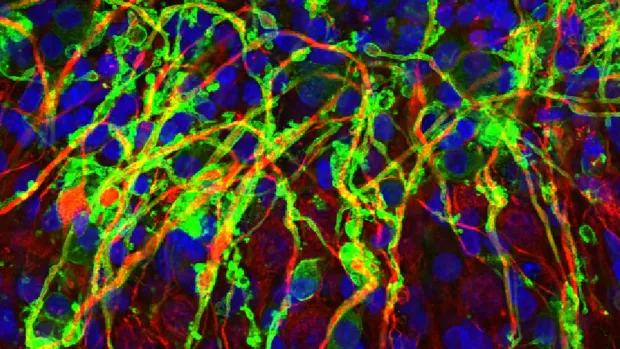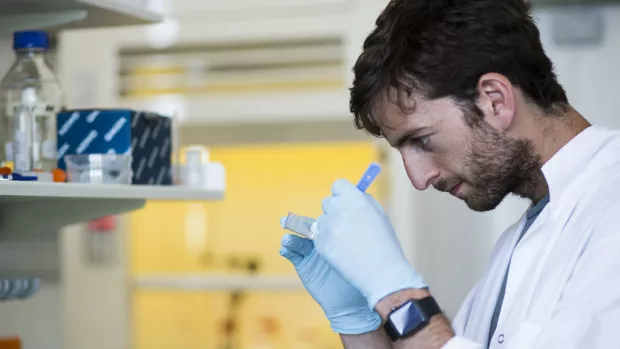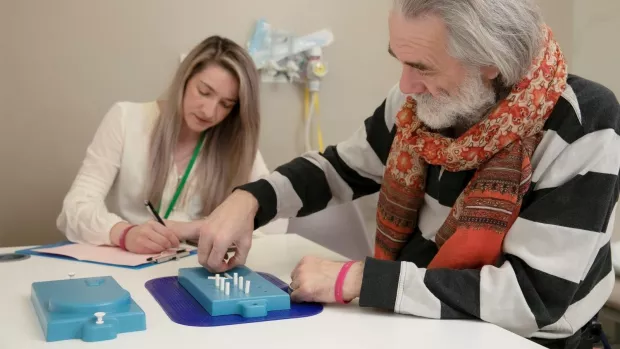
Research hope in a tough year
Sarah Rees lives with MS and is a member of our Research Network. She’s been taking a look back at some of the highs and lows for MS research during this exceptionally challenging year.
It’s been a tough year for everyone. Many of us have spent 2020 in uncertainty and isolation. People have lost jobs, loved ones and freedoms.
For MS research, the pandemic has presented many unexpected challenges. Researchers were stuck at home with labs closed or called to help the front-line fight to tackle coronavirus. Fundraising reduced dramatically which meant some planned research had to be postponed.
The resilience of MS researchers
And yet it has been a year of solidarity, creativity and flexibility.
Researchers managed to continue their work from home. Dr Veronique Miron is one of many who presented her research to the global community via her computer. PhD student Alistair Gamble has embarked on his MS research journey despite all the restrictions. New projects were quickly launched in response to Covid-19 to collect data and help people living with MS understand their risks.
Breakthroughs continue
And there has been much progress in MS research, despite it all.
Myelin repair is one of the most important areas of current MS research and we’ve had encouraging news this year - it is possible! A clinical trial showed bexarotene, a drug developed to treat cancer, was able to repair myelin in people with relapsing MS.
Unfortunately, the side effects were too severe for bexarotene to be taken forward. But a new trial will use the lessons learned to test whether the diabetes drug metformin, in combination with clemastine (an antihistamine), can safely repair myelin.
Science is as much about creativity as textbooks and test-tubes
It’s not just clinical trials where we’ve seen breakthroughs either. Another ray of hope came from Edinburgh where scientists found nerve cells in our brains can deliver a boost of energy to help damaged areas function better after myelin damage. And in mice, a diabetes drug, pioglitazone, can provide additional help.
If we ever needed evidence that no stone was being left unturned by MS researchers, this year we had updates from those looking into worm therapy and fruit peel for potential MS treatments. It’s a reminder that science is as much about creativity as textbooks and test tubes!
Plus, is your new year’s resolution to get more involved in MS research? How about getting involved with the testing of COMPASS, a talking therapy programme to reduce distress for people living with MS? This is one example of the ways MS research also focuses on helping to improve living with MS right now, as well as potential treatments.
Hope for 2021
We are now at the end of a year like no other, but there is still much to be hopeful for as 2020 moves into 2021.
Like ChariotMS, which will enrol its first participants in January. This trial is investigating whether cancer drug cladribine could help reduce the worsening of hand and arm function in people with advanced progressive MS.
And I’m told the MS Society still intend to make their most ambitious research project yet – the efficient clinical trials platform – a reality next year.
As someone living with MS I salute these incredible researchers for their creativity and resilience this year. Such unwavering determination to drive towards a time when MS can be stopped, pandemic or not, is the best Christmas present we could ask for.




